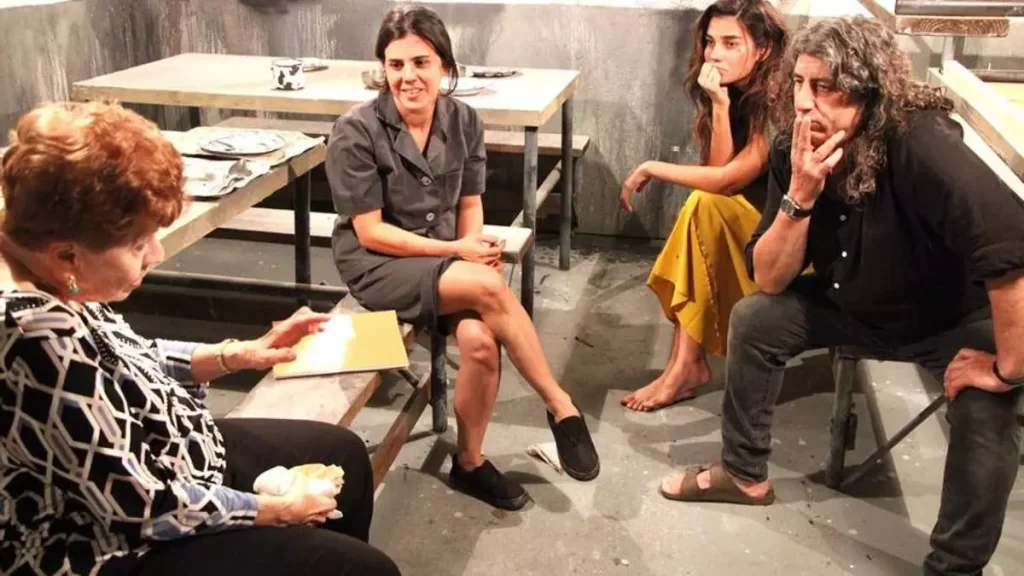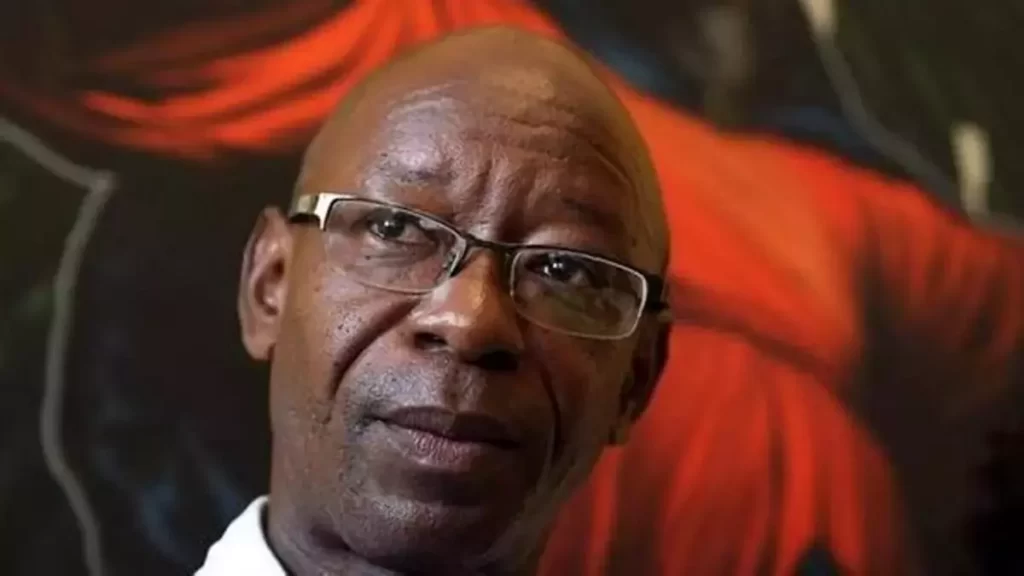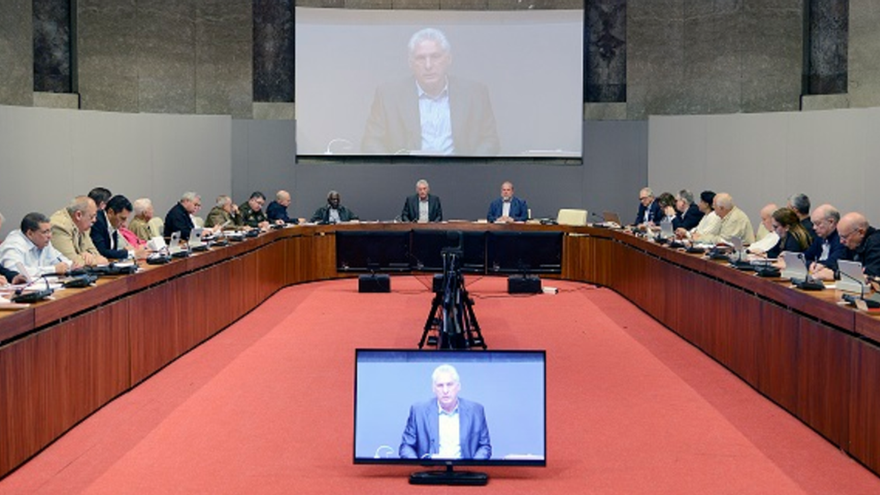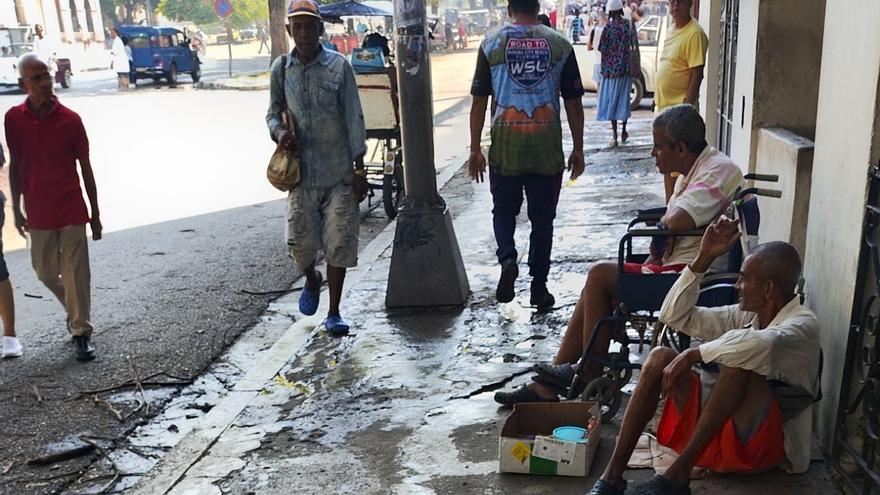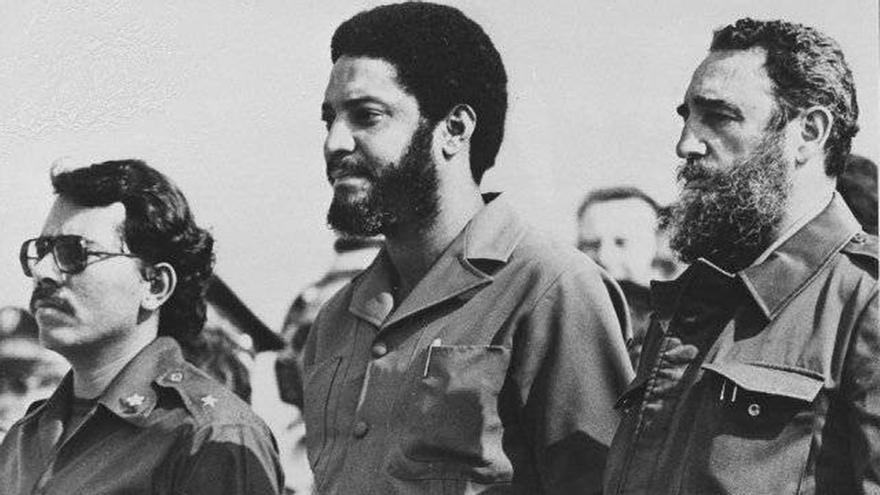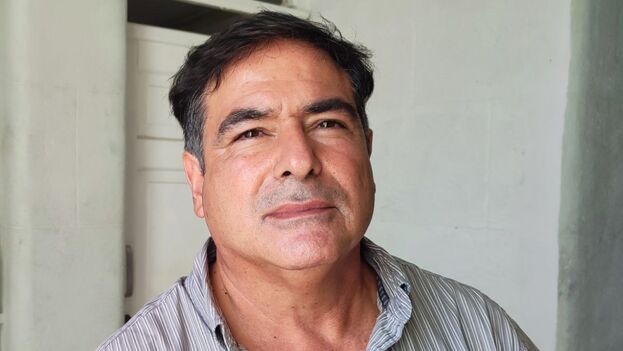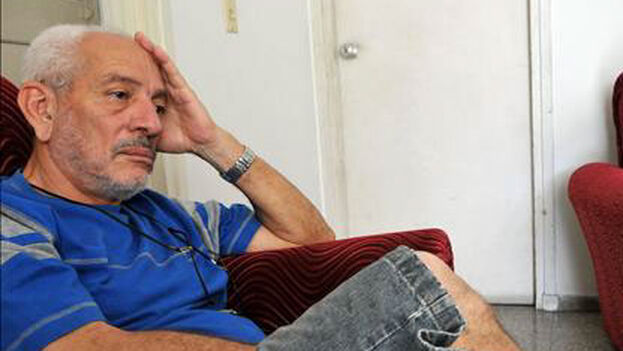Some did not want to speak, because they did not want to open that wound. I understand them, there are painful stories, many were not able to have children
Currently, several of those who did not initially give us their stories, after watching the film, have begun to accompany us to activities to offer their testimony to the public. The first one to tell us her story was América Quesada, who was not able to see the finished film, because she died a few days before filming began. From the money that she had raised up to that point for the film, we gave her family the sum necessary for her cremation, because she was having financial difficulties.
14ymedio/Escobar: In the reconstruction of the locations, especially in the outdoor scenes and those inside the prisons, it seems that a contrast was sought between light and shadow, between clarity and gloom.
Vilaplana: Each space has a specific mood. It is something that we were very clear about from the beginning. The light, the sound, the camera shots, the art of each space was worked with very few resources, but with great accuracy and care. We were clear that there must be a marked difference in these environments.
14ymedio/Escobar: Among the protagonists are several faces of the Cuban women who have recently emigrated to the United States, who were indoctrinated while in Cuba to view political prisoners as mercenaries. Was it difficult for them to embody those prisoners?
Vilaplana: It was a very interesting mix of actresses and actors with experience and long exiles, and others who have been in the diaspora for some time. Among them were several newcomers who, until recently, had starred in films with the ICAIC [Cuban Art Institute and Cinematographic Industry]. It was very interesting, because they adapted.
Everyone knew the movie Plantados. They had seen it in Cuba and here, they met with many of those male prisoners and also with the female political prisoners. They asked them for advice, they asked them questions, and that way they learned the story firsthand, that is a luxury for any actor. They were able to understand the events that occurred in Cuba and regretted so many years of useless indoctrination.
14ymedio/Escobar: Every film project has that moment when it seems like it’s not going to go ahead. Did Plantadas have that too?
Vilaplana: No, Plantadas did not go through that process. Those involved in the project trusted that it would be done, we had the support of a few politicians, some businessmen, townspeople and exiles who contributed what they had so that the movie could be achieved. They also gave us food, offered a location and donated vintage objects, proposed to build whatever was necessary or positioned their vintage cars, depending on the project. Vilaplana Films made available production elements to the film, many costumes, set pieces, prop weapons and filming equipment for free, to lower costs and be able to finish the film with the little money raised. We didn’t have the budget of Plantados, but we already had the experience of that first film.
I anticipate that another film with Cuba’s prison’s theme is coming, because we are working on a new project
14ymedio/Escobar: Are you worried about being pigeonholed as the director who addresses the Cuban political prison?
Vilaplana: It doesn’t worry me, because my work refutes that statement. I have many different titles in my career. I have been a director of internationally successful drug trafficking series such as El Capo (I directed four periods), Perseguidos, La Mariposa and Dueños del Paraíso. As director, I have also participated in other international series such as Lynch, Mentes en Shock, Sin Retorno, Tiempo Finaland Zona Rosa. I have directed soap operas: La Dama de Troya, Por Amor, Un Sueño Llamado Salsa, The Past Doesn’t Forgive, You Will Love Me in the Rain, La Traicionera and Portraits… among many others. In addition, I have been the director of short films such as La Muerte del Gato, La Casa Vacía, Los Ponedores, to which were added series of docudramas in the style of Arrepentidos, Siguiendo el Rastro, Expediente, Unidad Investigativa and Leyendas del Exilio.
I anticipate that another film is coming with the theme of Cuban prisons, because we are working on a new project to tell what happened in the concentration camps that the communists called UMAP [Military Production Assistance Units]. We have won several awards with many of our productions.
14ymedio/Escobar: They say that making films is very similar to the work of a craftsman. Where do you start to shape a film?
Vilaplana: Creation has unsuspected paths and one process is never similar to the other. Sometimes you have the movie and other times the movie looks for you. Plantadas was a dream that Reinol Rodriguez and I had, together with my son, Camilo Vilaplana, as director. We made it come true, with a great production team, technicians, artists and an exile who has supported this process by appropriating a piece that deals with human rights abuse.
14ymedio/Escobar: Just a few days ago, activist Lázaro Yuri Valle Roca arrived in Miami. He was taken to the Havana airport, forcing his departure practically from prison. It seems that 60 years later, for opponents in Cuba the options remain the same: prison or exile. Doesn’t that discourage you?
Vilaplana: That is what the Castro Regime wants, to discourage the fight. But we will always be facing the dictatorship, with the hope that, one day, this nightmare will end. I will never be part of works that discourage struggle. Knowing that men like Lázaro Yuri Valle Roca, José Daniel Ferrer and so many female political prisoners do not give up, gives hope.
14ymedio/Escobar: What are you going to do with all those hours of interviews with political prisoners that were conducted to bring into line the Plantadas story? Is there a documentary coming?
Vilaplana: For now, the Plantados and Plantadas interviews will all be at the American Museum of the Cuban Diaspora. I want all those who want access to this treasure to have it. If with my films I manage to evoke these dark stages of the Castro dictatorship in Cuba so that it is never repeated again, and for that reason alone, it will have been worth making these historical films.
If with my films I manage to remember these dark stages of the Castro dictatorship in Cuba so that it is never repeated again, and for that reason alone, it will have been worth it.
14ymedio/Escobar: It is one thing to reach the Cuban public and another to reach viewers who are further removed from the Cuban reality. How has the film fared in festivals and platforms?
Vilaplana: Reaching the Cuban public is important, but reaching the world is a challenge. The movie Plantados, for example, always packs the theaters when it is shown. But it is absolutely curious how the Castro regime manages to have tokens and accomplices who try to prevent these issues from reaching festivals and platforms where they almost always claim that if it is a “politics issue” they are not interested.
“Politics” refers to when The Castro Regime is denounced. If it is a product financed by tyranny, they accept it and change the terms. I don’t understand how such a macabre system has so many accomplices. In any case, a lot of work has been done and we have won four awards at different festivals, in addition to being on the billboards of cinemas in Miami and many cities in the United States for 10 weeks. Plantadas has also been screened in Puerto Rico and in several countries such as Canada, Colombia, The Dominican Republic, The Bahamas and others. Now, thanks to the work of our VIP 2000 distributors, we are on the largest Spanish language streaming platform, and in the first week it placed among the four most viewed films, competing with the big productions from Hollywood and other strong countries in the market. Plantadas is available throughout Latin America and the US on the VIX platform and has already been dubbed into English. We are working with platforms in Europe to continue spreading this message.
14ymedio/Escobar: Within Cuba, watching Plantadas has become an act that practically has to be carried out in secret. What efforts have been made to reach the public in Cuba?
Vilaplana: The public in Cuba has its own link to see the film, and we have several friends who distribute it. I also send it to everyone who asks me for it. Sometimes groups get together and show it and discuss the film.
14ymedio/Escobar: The Yara Cinema, La Rampa, the Chaplin or the Payret? In which of these rooms do you think Plantadas will be screened for the first time in Havana?
Vilaplana: Plantadas is going to be screened in a free Cuba and will one day be studied in Cuban universities, just like Plantados, because history is the memory of the people and the political prisoners who have given years of their lives confined for their homeland to be free, democratic and prosperous must be remembered, as their sacrifice deserves. Carrying out historical justice comforts me and alleviates the pain of this family separation, of the many who’ve been shot, killed and murdered because of a system that should never have been installed in Cuba.
*Translator’s note: Plantadas [literally ‘planted’] refers to female political prisoners who resist, refusing to conform to the demands of their jailers. Brief history of plantados [male political prisoners who resist] here.
Translated by Norma Whiting
____________
COLLABORATE WITH OUR WORK: The 14ymedio team is committed to practicing serious journalism that reflects Cuba’s reality in all its depth. Thank you for joining us on this long journey. We invite you to continue supporting us by becoming a member of 14ymedio now. Together we can continue transforming journalism in Cuba.

![]() 14ymedio, Reinaldo Escobar, Desde Aquí, Havana, 22 October 2024 — No foreign power has invaded Cuba in October 2024; there has been no earthquake; no devastating hurricane has crossed the island; there is no civil war nor has an epidemic broken out. Parliament has not declared itself in rebellion, disapproving the laws sent to it by the Government for consideration, the military remains in its barracks, there have been no social explosions like those that occurred in July 2021, nor has there even been a disagreement in the ranks of the Communist Party. No forest fires, no plagues, no tornadoes, but nevertheless, the consensus is growing that the current situation is the unequivocal sign of a terminal crisis.
14ymedio, Reinaldo Escobar, Desde Aquí, Havana, 22 October 2024 — No foreign power has invaded Cuba in October 2024; there has been no earthquake; no devastating hurricane has crossed the island; there is no civil war nor has an epidemic broken out. Parliament has not declared itself in rebellion, disapproving the laws sent to it by the Government for consideration, the military remains in its barracks, there have been no social explosions like those that occurred in July 2021, nor has there even been a disagreement in the ranks of the Communist Party. No forest fires, no plagues, no tornadoes, but nevertheless, the consensus is growing that the current situation is the unequivocal sign of a terminal crisis.


